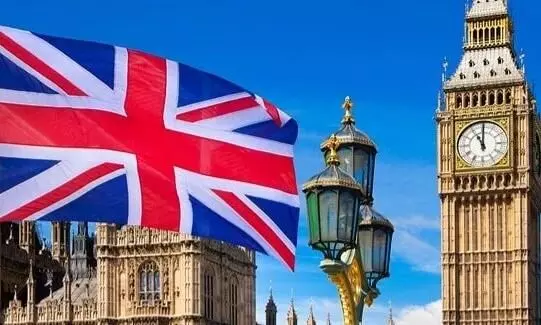
Guide to UK Universities: Costs, quality, and opportunities
text_fieldsThe United Kingdom is one of the highest-rated countries in the world for university education. A significant percentage of students at British universities are from overseas. QSI rates thousands of universities all across the globe. The United Kingdom always occupies at least two of the top ten spots.
Oxford and Cambridge are always among those two. Oxford has several times been rated the number one university on the planet; sometimes it has been Cambridge. This is mightily impressive when one considers that they have a far smaller endowment than their US analogues. Oxford has an endowment of about USD 10 billion, whereas Harvard has an endowment of USD 50 billion.
A bachelor’s degree in the UK usually takes three years. There are some subjects for which it takes four, usually modern languages. About 45% of youngsters in the UK enrol on bachelor’s courses. A high majority of them graduate, but a few dropout or fail. There are some very long courses, such as architecture, which take seven years, or veterinary medicine.
A master’s degree in the UK takes one or two years after a bachelor’s. About 10% of people in the UK attain an MA, MSc, M.Phil, or M.Litt. A doctorate (PhD) takes three or more years. Only 2% of the population earn a PhD.
There are other qualifications awarded by UK universities that are not degrees. There is a Higher National Diploma (HND) and a General National Vocational Qualification (GNVQ), both below degree level. There are postgraduate qualifications that are not degrees, such as a Postgraduate Diploma in Law (PGDL) or a Postgraduate Diploma in Journalism (PGDJ).
Fees
Fees in the UK depend on whether you are a home student or an international student. A home student is someone who lived in the UK for three or more years immediately prior to starting university; then you are a home student, regardless of nationality. If you are an Indian citizen who resides in the UK for three or more years before starting a university course, then you are a home student.
Conversely, if a British person lived abroad for any part of the three years before beginning a university course in the United Kingdom, then he or she is an international student. Note that the three years must be continuous. If, in those three years, you made brief trips abroad for holidays, etc., then the person is still a home student. However, if you break the continuity by going away for six months or more, then the three years is abrogated.
Home fees are GBP 9,250 per annum maximum for a bachelor’s degree, although some universities or subjects are slightly cheaper. International fees for a bachelor’s in a humanities subject usually range from GBP 20,000 and vary from university to university.
International fees for a science degree are usually GBP 30,000 per annum. Medicine and allied subjects, such as dentistry, typically cost GBP 40,000 per annum. Note that a medical degree takes five or six years. The most expensive degree in the UK is an MBA at Oxford University. This one-year degree costs GBP 80,000!
Notice that these fees cover only tuition. Rent, books, food, etc., are additional costs. The minimum wage in the UK is about GBP 20,000, so it is difficult to live on much less than that. Foreign students in the UK are allowed to do paid work. They are permitted to work up to 20 hours a week during term time and up to 40 hours a week during university holidays. Some people work more than this and usually get away with it. They often work as waiters, waitresses, chambermaids, cleaners, or building labourers.
Changing patterns of students
UK universities had their bachelor’s degree fees capped for home students in 2017 by the government. The universities argue that GBP 9,250 is not enough to educate home students, making a home student a money-losing proposition for these universities. However, it is politically unacceptable to raise the fees.
There is no cap on postgraduate (PG) fees. Therefore, British universities are proactively seeking more PG students. Moreover, there is no cap on fees for international students, so they are seeking to attract more international students. Because PG study is financially exclusive, it is less academically exclusive. Universities are desperate for PGs, especially from abroad, because of the higher fees they pay. This subsidises the university when it teaches loss-making home undergraduates.
Distance learning
It is possible to learn remotely. In the 1960s, Labour Prime Minister Harold Wilson founded the Open University, which pioneered distance learning. It allowed people to access tertiary education without their physical presence at the university. Courses were taken by correspondence. People obtained degrees by reading materials posted to them and returning their work.
This enabled mature adults working full time, housewives, prisoners, and people in other countries to benefit from university education. This was revolutionary at the time. Harold Wilson said it was his proudest achievement as PM. With the advent of the internet, it is possible to listen to lectures, watch videos, and submit work through portals.
The University of London has external programmes focused on distance learning. The benefit is that it costs about 10% of doing a degree in person. However, this only works for humanities subjects. In sciences and similar fields, physical presence is necessary to conduct laboratory experiments. An LLB at a UK university costs GBP 30,000 in fees on average. Through the University of London External Programmes, it is GBP 4,000!
How to Get a UK University Degree Absolutely Free
There is one way to obtain a degree from Oxford University without paying a penny: win a Rhodes Scholarship. Cecil Rhodes was a British imperialist, diamond trader, and sometimes Prime Minister of South Africa. He died childless in 1902. His bequest left GBP 6 million to Oxford University, worth over GBP 1 billion in modern value. He established the Rhodes Trust to administer the Rhodes Scholarships. These scholarships are available for men and women of all nationalities. You must fulfil the following criteria to apply:
Be between 18 and 26 years of age.
Have a degree from any university in the world in any subject.
They are looking for people with an excellent academic record but also extracurricular engagement, such as sporting achievements, charity work, political activity, or cultural endeavours. A Rhodes Scholarship will cover all your fees at Oxford University and provide a living allowance. This is a grant, not a loan. You could do one degree in two years and start another degree in your third year. Note that the scholarship lasts for only three years.
If you wish to continue at Oxford University beyond that, you may do so, but you will need alternative funding. A Rhodes Scholarship is potentially worth GBP 180,000, assuming someone did a very expensive degree, and the living costs grant is about GBP 20,000 a year. Therefore, thousands of very gifted and accomplished people apply each year for a few dozen places. The acceptance rate is 1.3%. Bill Clinton is the most famous recipient of Rhodes’ largesse.
Rhodes founded the scholarships to educate future leaders and to bind the British Empire together. Originally, they were only open to people from the colonies, the USA, and Germany. He wanted the United States to rejoin the empire, which did not work out. He made the scholarships available to Germans so that future German elitists would be favourably disposed towards the United Kingdom and thereby avert a world war. You may draw your own conclusions about how that worked out. However, in recent years, the scholarships were opened to all nationalities.
Recent changes
The UK used to allow students from abroad to bring their spouses and minor children with them. This has changed due to worries about excessive immigration. The spouse of a student was permitted to work in the United Kingdom while the student was studying. This brought many married couples into the United Kingdom.
UK universities are very concerned that they are not recruiting enough international students. Some British universities are in danger of going bust. This affects only a few out of 140.
Degree classes
A first-class degree is awarded to about 30% of students. In the 1990s, that was 8%. A 2:1 (pronounced ‘two one’) is awarded to about 45% of students. A 2:2 (‘two two’) is awarded to about 10% of students. A third-class degree is awarded to about 5% of those who graduate. There are students who fail or drop out, which is about 10%. There is a lot of grade inflation. Universities are businesses but do not have shareholders, and they often simplify courses.
Some young people think that university is a waste of time and money. Why come out GBP 50,000 in debt on average to be less employable than when you started? There are some universities it is not worth attending.
Home students do not have to pay their fees upfront. They have to start repaying them when they earn over GBP 25,000. The more they earn, the more is deducted each month to pay back the loan. Anything not repaid after 40 years is written off. The government estimates that most of this will never be repaid!
UK students can escape their debts by emigrating. The government will send them letters, but there is nothing they can do to make these people pay up.
Conclusion
The UK has some of the best universities in the world. It also has some low-rated ones. It is very easy to get into the worst ones. The UK ranks its universities in a league table each year. Oxford and Cambridge are usually numbers one and two. Imperial College London, University College London, and the London School of Economics (LSE) are normally in the top ten. However, there are dreadful universities near the bottom of the 140 that will accept anyone and offer very poor-quality courses.























